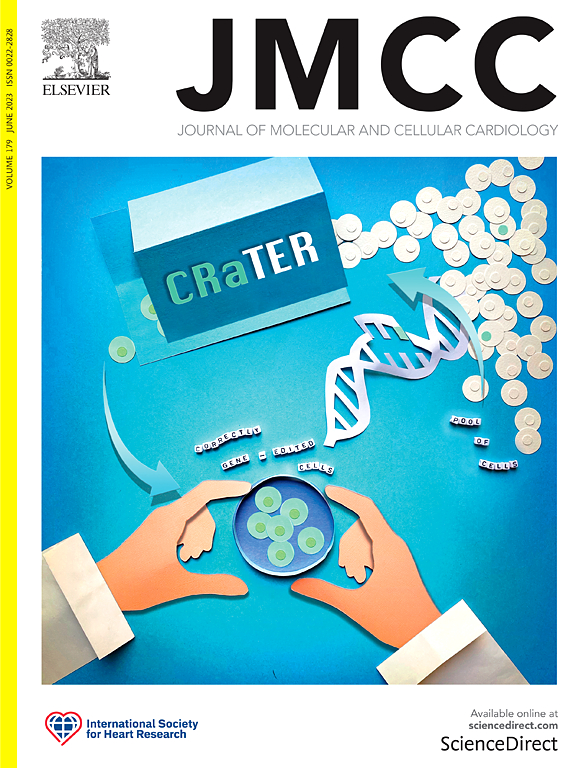Cardiac macrophage: Insights from murine models to translational potential for human studies
IF 4.7
2区 医学
Q1 CARDIAC & CARDIOVASCULAR SYSTEMS
引用次数: 0
Abstract
Macrophages are a cell type that are known to play dynamic roles in acute and progressive pathology. They are highly attuned to their microenvironments throughout maturation, tailoring their functional responses according to the specific tissues in which they reside and their developmental origin. Cardiac macrophages (cMacs) have emerged as focal points of interest for their interactions with the unique electrical and mechanical stimuli of the heart, as well as for their role in maintaining cardiac homeostasis. Through an in-depth analysis of their origin, lineage, and functional significance, this review aims to shed light on cMacs' distinct contributions to both normal physiological maintenance as well as disease progression. Central to our discussion is the comparison of cMac characteristics between mouse and human models, highlighting current challenges and proposing novel experimental tools for deciphering cMac function within the intricate human cardiac microenvironments based on current murine studies. Our review offers valuable insights for identifying novel therapeutic targets and interventions tailored to the distinct roles of these immune cells in cardiovascular diseases (CVDs).

心脏巨噬细胞:从小鼠模型到人类研究的转化潜力的见解。
巨噬细胞是一种已知在急性和进展性病理中起动态作用的细胞类型。在整个成熟过程中,它们与微环境高度协调,根据它们所处的特定组织和它们的发育起源来调整它们的功能反应。心脏巨噬细胞(cMacs)已成为关注的焦点,因为它们与心脏独特的电和机械刺激相互作用,以及它们在维持心脏稳态中的作用。通过对其起源、谱系和功能意义的深入分析,本综述旨在揭示cMacs在正常生理维持和疾病进展中的独特贡献。我们讨论的核心是比较小鼠和人类模型之间的cMac特征,突出当前的挑战,并根据当前的小鼠研究提出新的实验工具来破译复杂的人类心脏微环境中的cMac功能。我们的综述为确定新的治疗靶点和针对这些免疫细胞在心血管疾病(cvd)中的独特作用的干预措施提供了有价值的见解。
本文章由计算机程序翻译,如有差异,请以英文原文为准。
求助全文
约1分钟内获得全文
求助全文
来源期刊
CiteScore
10.70
自引率
0.00%
发文量
171
审稿时长
42 days
期刊介绍:
The Journal of Molecular and Cellular Cardiology publishes work advancing knowledge of the mechanisms responsible for both normal and diseased cardiovascular function. To this end papers are published in all relevant areas. These include (but are not limited to): structural biology; genetics; proteomics; morphology; stem cells; molecular biology; metabolism; biophysics; bioengineering; computational modeling and systems analysis; electrophysiology; pharmacology and physiology. Papers are encouraged with both basic and translational approaches. The journal is directed not only to basic scientists but also to clinical cardiologists who wish to follow the rapidly advancing frontiers of basic knowledge of the heart and circulation.

 求助内容:
求助内容: 应助结果提醒方式:
应助结果提醒方式:


